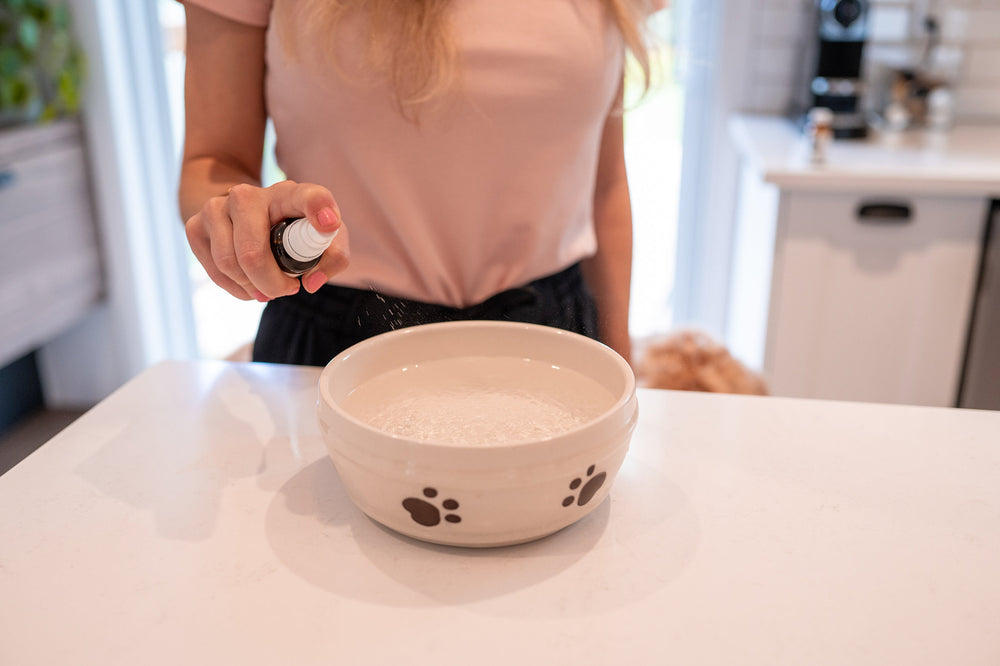Heart Murmur in Cats: Are There Vet-Approved Natural Remedies That Work?
List of Contents
- What is a Cat Heart Murmur?
- What are the Causes of Heart Murmurs in Cats?
- How Can You Tell If Your Cat Has a Heart Murmur?
- How are Cat Heart Murmurs Diagnosed?
- How are Heart Murmurs in Cats Graded?
- How Do Vets Treat Cat Heart Murmurs?
- Are There Natural Remedies for Heart Murmurs in Cats?
- Key Factors to Keep in Mind About Cat Heart Murmurs
- When Is a Cat’s Heart Murmur an Emergency?
- FAQs
If you're searching for natural remedies for heart murmurs in cats, you've come to the right place. In this article, I’ll explore effective holistic options and provide valuable insights into heart murmurs, heart disease, and ways to support your cat’s heart health.
What is a Cat Heart Murmur?

A heart murmur in cats refers to any abnormal sound heard by a veterinarian through a stethoscope. It often resembles a swishing or whooshing noise and results from turbulent blood flow within the heart or major blood vessels.
A feline heart murmur can be either physiological or pathological. A pathological murmur often indicates an underlying structural abnormality in the heart, which, if left untreated, may lead to heart disease.
In contrast, a pathological heart murmur is consistently present, whereas a physiological (or "physiologic") murmur may occur intermittently.
Contrary to popular belief, a heart murmur in cats is not always harmful. It’s a relatively common condition in felines. What matters most is identifying the underlying cause to ensure proper care.
What are the Causes of Heart Murmurs in Cats?
As mentioned earlier, feline heart murmurs can be either physiological or pathological. In this section, we’ll look at these causes in more detail.
Physiological heart murmurs
Also known as "innocent" heart murmurs, these are common in young kittens and often resolve as they grow. In adult cats, they can also occur due to stress or an increased heart rate.
Pathological heart murmurs
This type of feline heart murmur results from structural heart abnormalities, which can be either congenital or acquired. A common acquired condition is cardiomyopathy, the leading cause of heart failure. Congenital defects, present at birth, may affect areas such as the ventricular or atrial septum.
Other potential causes of cat heart murmurs
Interestingly, this condition can also be triggered by factors such as stress, anxiety, general illness, hyperthyroidism, high blood pressure, pregnancy, parasites, anemia, and weight issues like obesity or being underweight.
How Can You Tell If Your Cat Has a Heart Murmur?
Before we move on, it’s important to note that a heart murmur is not a condition but a symptom. It refers to an abnormal heart sound that can be detected through auscultation. While cats with heart murmurs—especially physiological ones—often show no symptoms, those with pathological murmurs may exhibit the following signs:
- Sudden weakness or lethargy
- Difficulty breathing
- Weight loss or reduced appetite
- Pale gums
- Weak pulse or irregular heartbeat, which may indicate a more serious underlying condition
If your cat exhibits these signs, seek guidance from your veterinarian or a pet homeopathy specialist as soon as possible. Heart disease and related conditions can be life-threatening, so early intervention is essential.
How are Cat Heart Murmurs Diagnosed?

Heart murmurs in cats often indicate structural heart disease or congenital defects and are typically detected through auscultation—the process of listening to your pet's heart with a stethoscope. Your veterinarian may recommend additional tests to identify the underlying cause.
One such test is measuring NT-proBNP, a protein released by the heart, particularly when it's under stress. This test helps determine whether a cat with a heart murmur has heart disease.
However, a high proBNP level does not always indicate heart disease in pets, but it does suggest that further evaluation is needed.
If your veterinarian suspects a heart defect or underlying heart disease, they may recommend a veterinary cardiologist for an echocardiogram to assess your cat's heart health.
Echocardiography is a specialized heart scan that enables cardiologists to evaluate all four heart chambers, assess blood flow, and detect abnormalities. It is the gold standard for diagnosing ventricular septal defects, heart valve disorders, and hypertrophic cardiomyopathy (HCM) in cats.
X-rays, electrocardiograms (ECG), and blood tests can also aid in diagnosing the cause of your cat’s heart murmur and evaluating their overall heart health.
How are Heart Murmurs in Cats Graded?
Did you know that feline heart murmurs are classified into grades based on intensity and loudness? Grade I and II murmurs are the softest and most difficult to detect, while Grade VI murmurs are the loudest and can even be felt through the chest wall.
It's important to understand that the grade of a cat's heart murmur does not always indicate the severity of the underlying heart condition. Location and timing within the heart cycle also influence its loudness and intensity.
How Do Vets Treat Cat Heart Murmurs?

Interestingly, there is no one-size-fits-all treatment for heart murmurs in cats. Management depends on the underlying cause and the presence of clinical signs. Innocent murmurs require no treatment but should be regularly monitored.
Conditions such as hyperthyroidism or anemia must be treated, while cardiac disease may require medication, specialized diets, and supportive care. Regular veterinary check-ups are crucial for monitoring changes and ensuring your cat receives the best care.
Are There Natural Remedies for Heart Murmurs in Cats?
Yes, there are natural remedies for cat heart murmurs. However, if your cat experiences additional clinical signs beyond a detected whooshing heart sound, consulting a pet homeopathy expert can help identify the underlying cause and guide appropriate treatment.
TONICPET #1, TONICPET #2, and TONICPET #4 contain natural properties that help strengthen the heart muscle and support tissue oxygenation when needed:
- TONICPET #1: Promotes flexibility and elasticity of body tissues.
- TONICPET #2: Supports the health of bones, teeth, organs, and tissues.
- TONICPET #4: Enhances the body's natural immune response and supports healthy oxygen circulation.
Key Factors to Keep in Mind About Cat Heart Murmurs
Contrary to common belief, many cats with heart murmurs—especially innocent ones—can live long, healthy lives.
The prognosis depends on the underlying cause and severity. In addition to consulting a pet homeopathy specialist for natural remedies, regular veterinary check-ups are essential for monitoring and managing the condition.
More useful insights about heart murmurs in cats
Did you know that innocent heart murmurs in cats are common and often resolve within 4 to 6 months? In contrast, congenital heart defects require further evaluation. It’s also important to note that breeds like Maine Coons, Persians, and Siamese cats are more prone to certain heart conditions.
When Is a Cat’s Heart Murmur an Emergency?
While a cat’s heart murmur isn’t always a cause for concern, it’s important to contact your veterinarian if you notice any of the following signs:
- Difficulty breathing
- Sudden weakness or lethargy
- Unexpected weight loss or sudden pickiness with food or water
- Pale or discolored gums
- A diagnosed heart condition
It's important to provide prompt care and attention, as this condition can pose a serious risk to your pet. Early detection and regular veterinary check-ups play a key role in effective management.
FAQs
What is the life expectancy of a cat with a heart murmur?
The life expectancy of a cat with a heart murmur depends on the underlying cause. Innocent murmurs have little impact, while those linked to heart disease may shorten their lifespan. Regular veterinary care and pet homeopathy consultations are essential.
What can be done for a heart murmur in a cat?
Treatment for a cat's heart murmur depends on the underlying cause. Innocent murmurs require monitoring, while heart disease may need medication, dietary changes, and supportive care. Regular veterinary check-ups and pet homeopathy consultations help manage the condition and ensure your cat’s well-being.
Can a heart murmur cause sudden death in cats?
A heart murmur alone doesn’t cause sudden death, but if associated with severe heart disease, it can lead to life-threatening complications like heart failure or blood clots. Regular check-ups and consultation with a veterinarian and/or a pet homeopathy specialist are essential for early detection and management.
What does a vet do for a heart murmur?
A vet detects a heart murmur through a physical exam and may suggest tests like X-rays, echocardiograms, or bloodwork. Treatment varies based on the cause and may involve monitoring, medication, dietary adjustments, or specialist referral.
What cat food is good for heart murmurs?
Cats with heart murmurs benefit from diets rich in taurine, omega-3 fatty acids, and low sodium to support heart health. Veterinary-prescribed cardiac diets or high-quality commercial foods with heart-friendly nutrients can help manage the condition effectively.
Can a heart murmur go away?
Some heart murmurs, especially innocent ones in kittens, may resolve as they grow. However, those caused by underlying conditions can persist or worsen. Regular veterinary check-ups and pet homeopathy consultations are essential for monitoring and proper care.
Can a heart murmur repair itself?
Some heart murmurs, particularly innocent ones in kittens, may resolve as they mature. However, those linked to underlying heart disease or other conditions often persist and require ongoing veterinary monitoring, appropriate management, and specialized care.
Can medicine help a heart murmur?
Medication doesn’t cure a heart murmur but can help manage underlying conditions like heart disease, hypertension, or anemia. Veterinarians may prescribe drugs to support heart function, improve circulation, and reduce the risk of complications. A qualified pet homeopath or naturopath may also recommend appropriate treatments.
What drink calms the heart?
A herbal tea like chamomile may help promote relaxation and support heart health. Thoroughly check that the tea contains no ingredients toxic to dogs. However, always consult a veterinarian or a pet homeopathy specialist before giving any herbal remedies to your cat to ensure safety and effectiveness.
When should I worry about a heart murmur in my cat?
Be concerned if your cat’s heart murmur is accompanied by clinical signs such as breathing difficulties, lethargy, weight loss, pale gums, or decreased appetite. Promptly consult a veterinarian or pet homeopathy expert to identify the cause and appropriate treatment.
What to feed a cat with a heart murmur?
Feed a cat with a heart murmur a diet rich in taurine, omega-3 fatty acids, and low sodium to support heart health. Veterinary-prescribed cardiac diets or high-quality commercial foods with heart-friendly nutrients are generally recommended.
How long can a cat live with a heart murmur?
A cat’s lifespan with a heart murmur depends on the underlying cause. Innocent murmurs have little impact, while those linked to heart disease may shorten life. Regular veterinary monitoring and proper management can help improve longevity and quality of life.
Can heart murmurs in cats be treated?
Heart murmurs aren’t treated, but underlying conditions may be managed with medication, dietary changes, or lifestyle adjustments. Regular veterinary check-ups and assessments with a pet homeopathy expert are essential to monitor progression and ensure appropriate care for your cat’s heart health.
How serious are heart murmurs?
The severity of a heart murmur varies. Innocent murmurs are harmless, but those caused by heart disease can be serious or life-threatening. A veterinary assessment is crucial to determine the cause and appropriate management.
Conclusion
The bottom line is that heart murmurs in cats are common and don’t always indicate serious heart disease. Early detection is key to proper management. Working with your veterinarian and a pet homeopathy expert ensures the best care for your cat.









Leave a comment